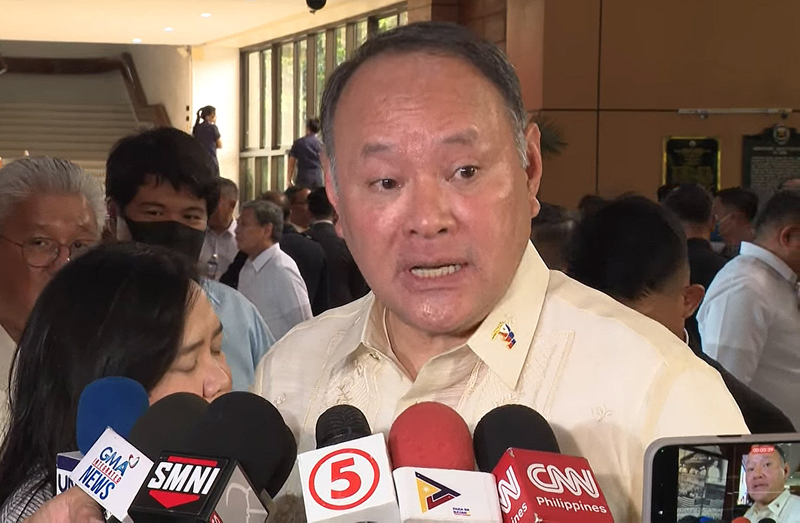Defense Secretary Gilberto Teodoro called for a broader definition of what constitutes an “armed attack” under Manila’s Mutual Defense Treaty (MDT) with Washington in the wake of unabated and increasingly brazen attacks against Philippine vessels in the West Philippine Sea (WPS).
On Tuesday, the secretary proposed the MDT’s review before United States defense officials gathered at the 35th International Military Law and Operations Conference (MILOPS) 2024 of the US Indo-Pacific Command at the Manila Hotel.
“Why should we stick to the treaty’s narrow definition (of an armed attack)? We are getting attacked over and over again… it’s about time we broaden the definition,” he said in a mixture of English and Filipino.
Teodoro disclosed that top brass of the Philippine and U.S. militaries will discuss the possibility of modifying the MDT on Thursday in Baguio City.
He emphasized that new measures should be taken to adapt to the current dynamics in the WPS.
Meanwhile, Vice President Sara Duterte eaffirmed her commitment to an independent foreign policy as outlined in the Constitution with regard to the issue on West Philippine Sea.
“I stand by the Constitution which provides that “The State shall pursue an independent foreign policy. In its relations with other states, the paramount consideration shall be national sovereignty, territorial integrity, national interest, and the right to self-determination,” Duterte said in her opening statements during the OVP budget hearing at the House of Representatives.
She emphasized that bilateral relations should consider broader regional stability and shared interests, and she stressed that decisions on foreign policy are primarily the responsibility of the President and relevant agencies.
“As Filipinos, we are all in agreement that our claim is firmly anchored on the UNCLOS and the 2016 Arbitral Award.
“But we must also bear in mind that Bilateral relations are not dictated by a singular issue or concern like a territorial dispute, but rather by a comprehensive approach that considers the broader context of shared interests and regional stability,” Duterte told the House appropriations panel chaired by Ako Bicol Rep. Zaldy Co.
The MILOPS conference aims to foster transparent discussion about complex issues impacting international security.
“Let us not allow ourselves to become victims… let us strive to win. But we need to form a strong consensus against China. Otherwise, China won’t stop (its aggression) Teodoro added.
The defense chief also accused China of being “the primary disruptor of international peace in the region.”
His remarks came at the heels of a series of confrontations between Philippine and Chinese vessels inside Manila’s Exclusive Economic Zone.
As this developed, the Philippine Navy (PN) reported increasing numbers of Chinese vessels in Escoda Shoal in the WPS.
In its August 20 to 26 report, the PN monitored 40 Chinese Maritime Militia Vessels, more than double its previous number.
PN spokesperson for the WPS Rear Admiral Roy Vincent Trinidad said this increase intends to disrupt the Philippine government’s lawful activities in Escoda.
“This is notable in the past days wherein PCG (Philippine Coast Guard) and BFAR (Bureau of Fisheries and Aquatic Resources) ships were subject to coercive and aggressive actions,” he said.
Trinidad also said that China’s recent actions in the WPS “raises the risk for a miscalculation.”
Meanwhile, the PCG reported on Tuesday that essential supplies on BRP Teresa Magbanua, stationed at Escoda Shoal, are critically low due to Chinese vessels blocking resupply missions.
PCG Spokesperson for West Philippine Sea Commodore Jay Tarriela highlighted the urgency of a humanitarian mission to deliver necessary supplies to the ship.
The situation has become problematic following increased aggressive actions by China in the area starting in mid-August.
Despite the critical shortages, Tarriela said the crew’s morale remains high.





